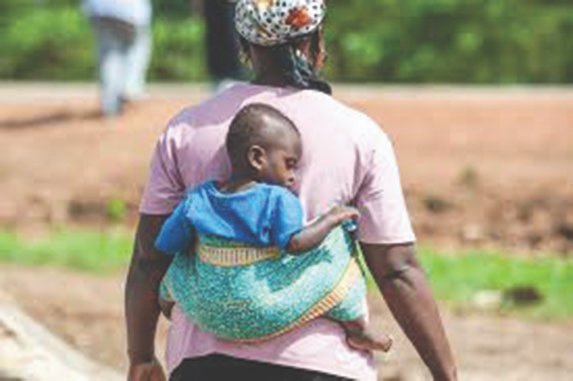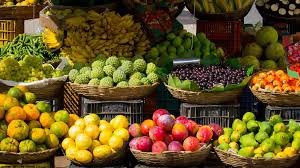Nutrition
Galamsey and Nutrition: Counting the real cost of Ghana’s gold rush

Illegal small-scale mining, or galamsey, has been branded as one of Ghana’s gravest environmental and economic threats. Successive governments have promised action, task forces have been deployed, and billions of cedis lost in revenue have been reported. Yet a deeper crisis is unfolding beneath the surface: a nutrition emergency directly linked to the destruction caused by galamsey.
Across mining belts in the Western, Ashanti, and Eastern regions, rivers that once sustained farming and fishing are contaminated with mercury and cyanide. Farmers say irrigation is impossible; fishermen say their nets return empty. Independent studies confirm that mercury levels in some rivers exceed World Health Organisation guidelines. The result is a sharp reduction in safe food production and an erosion of the very foundation of Ghana’s nutritional security.
The figures are sobering. Nationally, one in five children under five is stunted. Nearly half of women of reproductive age are anaemic. Child wasting remains at emergency levels in some districts. The destruction of fertile land and poisoning of water through galamsey only compound these problems. In some mining-affected districts, local health authorities report higher rates of undernutrition and anaemia than the national average.
Economists estimate that malnutrition already costs Ghana up to 6.4 per cent of its GDP each year in lost productivity, poor educational outcomes, and higher health expenditures. With agriculture compromised by galamsey, the bill is rising. Food inflation is being felt in urban markets, while rural households in mining areas are forced to survive on monotonous diets that lack the nutrients needed for growth and development.
The accountability gap is glaring. Ghana committed at the 2025 Nutrition for Growth Summit to invest $6 million annually in nutrition. Yet the same state resources continue to be drained by environmental damage, water treatment costs, and agricultural losses linked to galamsey. While authorities launch operations against illegal miners, enforcement remains inconsistent and politically fraught, raising questions about who benefits from the destruction.
Experts warn that without decisive action, galamsey will derail Ghana’s progress toward the Sustainable Development Goals, particularly those on zero hunger, good health, and climate action. “Every river poisoned is a food system destroyed, and Ghana cannot achieve food security while watching our land vanish,” says Dr Charity Binka, Executive Director, WOMEC.
The evidence is clear: galamsey is not just an environmental crime. It is a public health emergency and a development crisis. Addressing it requires more than rhetoric; it requires enforcement, transparency, and the political will to confront vested interests. Unless this happens, Ghana risks trading its children’s nutrition and future productivity for short-term gains in gold.
We therefore demand the activation of permanent inter-agency galamsey response teams with prosecutorial authority independent of political interference and the establishment of a Galamsey Restoration Fund financed through penalties for river remediation and emergency nutrition interventions. We also call for the publication of quarterly malnutrition data disaggregated by mining-affected districts.
We join the call for amendments to the Minerals and Mining Act with a focus on mandating nutrition impact assessments with automatic permit suspension for violations, the resourcing of community water monitoring committees with testing kits, and the invitation of UN Special Rapporteurs to assess affected regions and provide independent recommendations.
We urge every citizen to demand that their MP publicly declare their enforcement plan and support stronger penalties, because the evidence is overwhelming and the solutions are known. Ghana’s rivers, farmlands, and children cannot wait for another empty promise.
Feature Article by Women, Media and Change under its Nourish Ghana: Advocating for Increased Leadership to Combat Malnutrition Project
Join our WhatsApp Channel now!
https://whatsapp.com/channel/0029VbBElzjInlqHhl1aTU27

Nutrition
The First 1,000 Days: Why Ghana’s investment in maternal and child nutrition matters for human capital development

From the start of pregnancy to a child’s second birthday, the first 1,000 days, represents the most important window for human development. Good nutrition shapes the foundation.
During this short window, the body and brain grow at a pace that will never be repeated. When nutrition is inadequate, the damage to physical growth and cognitive development is often permanent. No later investment in education or healthcare can fully reverse these losses. Ghana’s future workforce and economic progress depend on getting nutrition right during this critical period.
Science is clear. A baby’s brain develops rapidly during pregnancy and early childhood, forming the foundation for all future learning and health. Adequate nutrients during pregnancy support the formation of neural connections that underpin learning, memory, and emotional regulation. When pregnant women lack essential nutrients, their babies begin life at a disadvantage. When young children experience severe malnutrition, they miss critical growth periods that do not return.
Ghana faces serious challenges during this critical window. An estimated 68,517 children suffer from severe acute malnutrition. Between 37 and 63 percent of pregnant women are anemic, with iron deficiency particularly common in late pregnancy. These problems translate directly into diminished potential. Malnourished children perform worse in school, earn less as adults, and face higher risks of chronic diseases. The economic losses multiply across generations.
Research worldwide shows that nutrition investments during the first 1,000 days deliver exceptional returns. Well-nourished children learn better, perform better academically, and become more productive adults. Countries that invest in early nutrition experience faster economic growth through stronger, more productive workforces.
Ghana already has effective solutions. Multiple Micronutrient Supplements for pregnant women reduce the risk of low birth weight and preterm birth, while Ready-to-Use Therapeutic Food enables high recovery rates for children with severe acute malnutrition. Both are approved in Ghana’s health guidelines. The problem is not lack of knowledge but lack of access. Coverage remains limited because financing depends heavily on donor support rather than sustainable domestic systems.
Integrating these nutrition interventions into the National Health Insurance Scheme would help close this gap. With a large proportion of mothers and young children already enrolled, NHIS provides a platform for nationwide reach. Recent reforms to health financing further strengthen the case for prioritising essential nutrition services within the scheme.
Ghana’s development agenda emphasizes industrialisation, innovation, and economic transformation. Achieving these goals requires a workforce capable of learning, problem-solving, and sustained productivity. Human capital development, however, does not begin at universities or training centers. It begins before birth.
The first 1,000 days offer no second chances. Each year of delay means another group of children enter adulthood carrying preventable disadvantages. Investing in nutrition during this critical window is not only a health priority; it is a foundational investment in Ghana’s economic future.
Feature article by Womec, Media and Change under its Nourish Ghana: Advocating for Increased Leadership to Combat Malnutrition project
Join our WhatsApp Channel now!
https://whatsapp.com/channel/0029VbBElzjInlqHhl1aTU27

Nutrition
Importance of Fruits During Ramadan

Ramadan, the ninth month of the Islamic lunar (Hijri) calendar, is a period of fasting, reflection, and spiritual growth. A vital part of observing Ramadan is Iftar—the evening meal with which Muslims break their daily fast at sunset. Fruits play an essential role in Iftar, providing nutrition, hydration, and energy after long hours of fasting.
Here are some of the most recommended fruits to include in your Ramadan meals:
Dates
Dates are traditionally used to break the fast. They are rich in sugar, fibre, potassium, vitamins, and minerals, helping to restore energy quickly after fasting.
Watermelon
Watermelon is highly consumed for hydration, as it is composed mostly of water. It can be enjoyed in slices or blended into refreshing smoothies.
Bananas
Bananas are an excellent source of potassium, which helps maintain fluid balance and reduce thirst. They also provide natural energy to keep you going after fasting.
Apples
Apples are fibre-rich and nutritious, promoting heart health, aiding weight management, and improving digestion.
Cucumber
Cucumber is one of the best hydrating fruits, composed of water and fibre, which aids digestion while revitalising the body.
Pawpaw (Papaya)
Pawpaw is low in calories and sugar, rich in fibre, and promotes healthy digestion, hair, and skin. It is a nutritious addition to any Iftar meal.
Including a variety of these fruits during Ramadan not only helps replenish lost nutrients but also supports overall health, digestion, and hydration throughout the fasting period.
By Linda Abrefi Wadie
Join our WhatsApp Channel now!
https://whatsapp.com/channel/0029VbBElzjInlqHhl1aTU27







